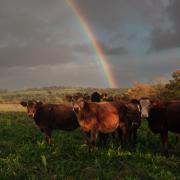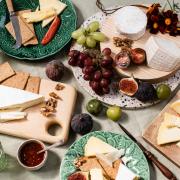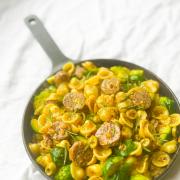Devon winemaker Ben Hulland shares six things he wishes he’d known before starting up Huxbear vineyard at Chudleigh - or as he also describes it: Cautionary tales of Wild Optimism and World Class Naivety.
1. Agriculture is hard. Before we started here, your correspondent had done a certain amount of tending to vines at ‘wine university’ - Plumpton College - and had worked at a couple of different wine estates. I was also a keen cyclist and runner and not exactly a stranger to the inside of a gym. But none of these things prepared me for farming. From the miles and miles of walking and running up and down hills, to the bending over thousands of times to remove the unwanted shoots from the trunks of the vines, everything is hard work. I’m not entirely sure what I would have done with this information were we to be in possession of it before starting out, but I suspect that it might have involved finding a job for people with lovely soft hands.
2. Farmers have lots of machinery for a reason. Vines are a labour intensive sort of plant so there is inevitably a machine to assist with most jobs on the vineyard. It’s technically possible to prune with a very expensive piece of equipment, and one can even pick grapes with an even more expensive piece of equipment, but people in this country generally don’t go for that, because their vineyards aren’t big enough to justify the expense. It’s possible to take the whole ‘hand crafted’ thing a bit far though: Cutting the grass in between ten acres of vines with a strimmer? Bad idea. And in spite of then marvelling at the wonders of a tractor mounted grass mower, it was to be another five years of marching up and down the hills attached to a knapsack sprayer before we discovered the wonders of a sprayer that also attaches to the tractor. Work out a balance as quickly as you can.
3. You can never spend too much on waterproof clothing. At the risk of sounding like some sort of sponsored piece for Goretex, I can’t overstate how important it is to have clothes that keep you warm and dry if you intend to spend the entire winter stood in a field. As your intrepid vigneron spends his time stood mostly still on a hillside while winter pruning, a pair of boots designed for clambering up the side of a mountain make an astute purchase too.
How well do you know Devon’s wine producers? Here are four to check out.
4. Small, slow and steady wins the race. We were in our twenties when we sold our house and bought our vineyard land, and we were as ambitious as we were impractical. We spent almost everything that we had having arguably too many (16,500 and counting) vines planted. We had plenty of land and would probably have benefited from really getting to know it, and having a little more time to enjoy the whole process of deciding what to put where. On the other hand, older vines do make better wine, so the more that we have of those the better.
5. Yelling at the sky is unproductive. No matter how much time you spend bawling at it like a Shakespearian King on a bad day, you can’t stop rain from coming out of it. What I mean is - it’s important to learn how to focus on the things that you can change and just ignore the ones that you can’t, but it does take a certain amount of practice. The worst that the English ‘summer’ throws at us can usually be mitigated by protecting the vines in the vineyard and by an experienced hand in the winery. Focusing on what you can change is also a good skill to have when listening to the news on the radio…
6. You are supposed to be making wine for your customers. NOT yourself. Chatting to fellow wine makers, this is the sin that I think that most have been guilty of at some point. Because an essential part of a winemaker’s job is to taste their own wine on a regular basis (ample, ample recompense for a bit of being rained on) - this can cause major problems for objectivity. First, you tend to get used to drinking small amounts of unsweetened wine from the tank and develop what is called ‘cellar palate’, which is essentially a preference for wine that is too acidic for commercial release. Secondly, having spent all year making the wine, we can be a little (or a lot) resistant to criticism! Fortunately, enthusiastic market research for wine is usually available at no cost.
Have you joined the Devon Life Facebook page yet?



























